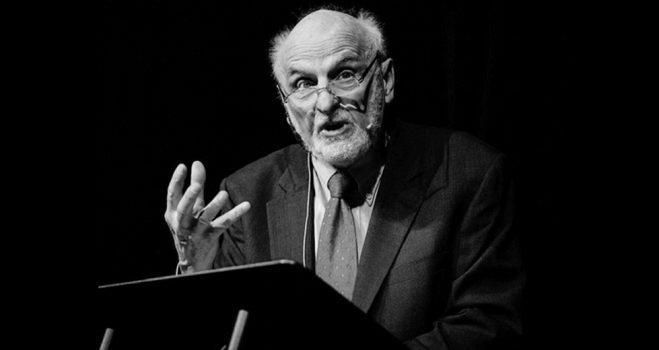The World Council of Churches (WCC) is celebrating the life and mourning the death of Walter Brueggemann, who passed away peacefully on 5 June at the age of 92.
Brueggemann understood that the church's task is one of resistance: "Our task is to be different because of our baptism. Our task is resistance as it has always been resistance. Our task is critical engagement that exposes sweet, pious, private religion as the handmaid of abusive economics." His call was clear: to fast "for the sake of the hungry, the poor, the homeless, the naked," a fast "powered by the self-giving love of God and invites us to self-give as did the One who became obedient unto death."
Beyond his tireless professional activities of teaching, preaching, and writing, Brueggemann was a voracious reader, consuming multiple newspapers every day, being a familiar visitor to local libraries and bookstores wherever he lived, devouring scholarly work, magazines, journals, non-fiction and novels on a vast range of topics.
"Imperial economics is designed to keep people satiated so that they do not notice. Its politics is intended to block out the cries of the denied ones. Its religion is to be an opiate so that no one discerns the misery alive in the heart of God," he said.
Walter Albert Brueggemann was born in Tilden, Nebraska, the son of August Brueggemann, a pastor of the Evangelical and Reformed Church (an antecedent of the United Church of Christ) and Hilda Hallman Brueggemann. Like his father, he was rooted in the evangelical tradition of German Pietism that continued to be his theological habitat. He grew up in rural parsonages in Nebraska, Kansas, and Missouri. He graduated from Elmhurst College, received his Bachelor of Divinity from Eden Theological Seminary, and a Doctorate in Theology from Union Theological Seminary in New York. He later earned a Doctorate in Philosophy from St Louis University.
Brueggemann was elected president of the Society of Biblical Literature in 1990, received a Niebuhr Theological Fellowship, a Henry Luce Theological Fellowship, The Niebuhr Medal from Elmhurst College, received eight honorary doctorates, and was made an admiral in the Nebraska Navy and an Arkansas Traveler.
He was ordained, along with his brother Edward, by his father into the Ministry of Word and Sacrament in the United Church of Christ in 1958. In 1960 he was married to Mary Bonner Miller. They were blessed with two sons, James Bonner and John Frederick. They were divorced in 2005. In 2011 he married Tia Ehrhardt.
In 1961 Walter joined the faculty of Eden Theological Seminary, his alma mater, and served until 1986, during which time he served as academic dean for 14 years. He joined the faculty of Columbia Theological Seminary in 1986, where he was the William Marcellus McPheeters professor of Old Testament until his retirement in 2003. During his years on these theological faculties, he was a generative teacher, an engaged institutional citizen, and a prolific writer. In his scholarship he was an indefatigable interpreter in the service of church renewal and social justice. During his teaching years, Brueggemann relished working with his students, treasured collegial relations with faculty colleagues, and delighted in friendship with countless pastors.
He died peacefully at Munson Hospice House in Traverse City, Michigan.
A memorial service will be held (and publicly live-streamed) on 19 July at 2 pm at Central Methodist Church in Traverse City, Michigan. In lieu of flowers, memorials may be sent to Eden Theological Seminary, 475 E. Lockwood, St. Louis, MO 63119, or Columbia Theological Seminary, 701 S. Columbia Drive, Decatur, GA 30030.
Originally from the World Council of Churches
CCD reprinted with permission












